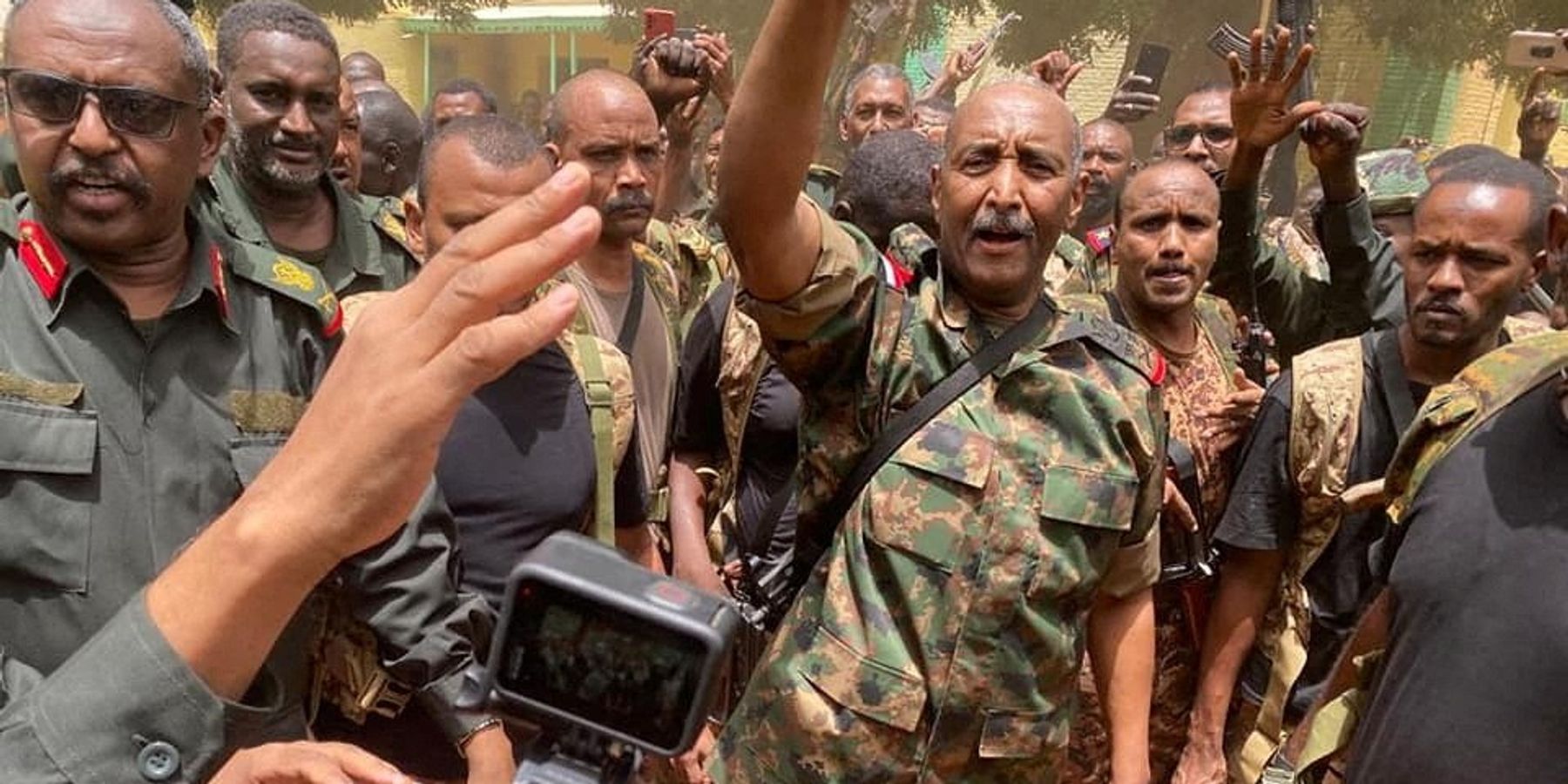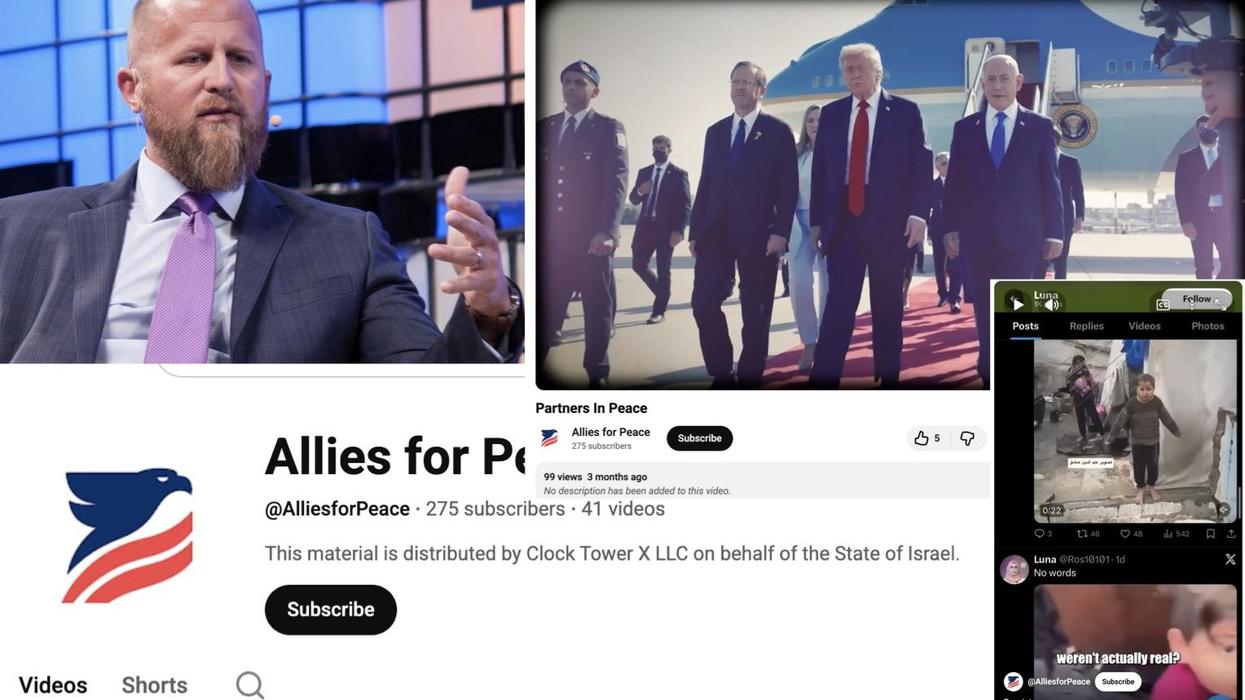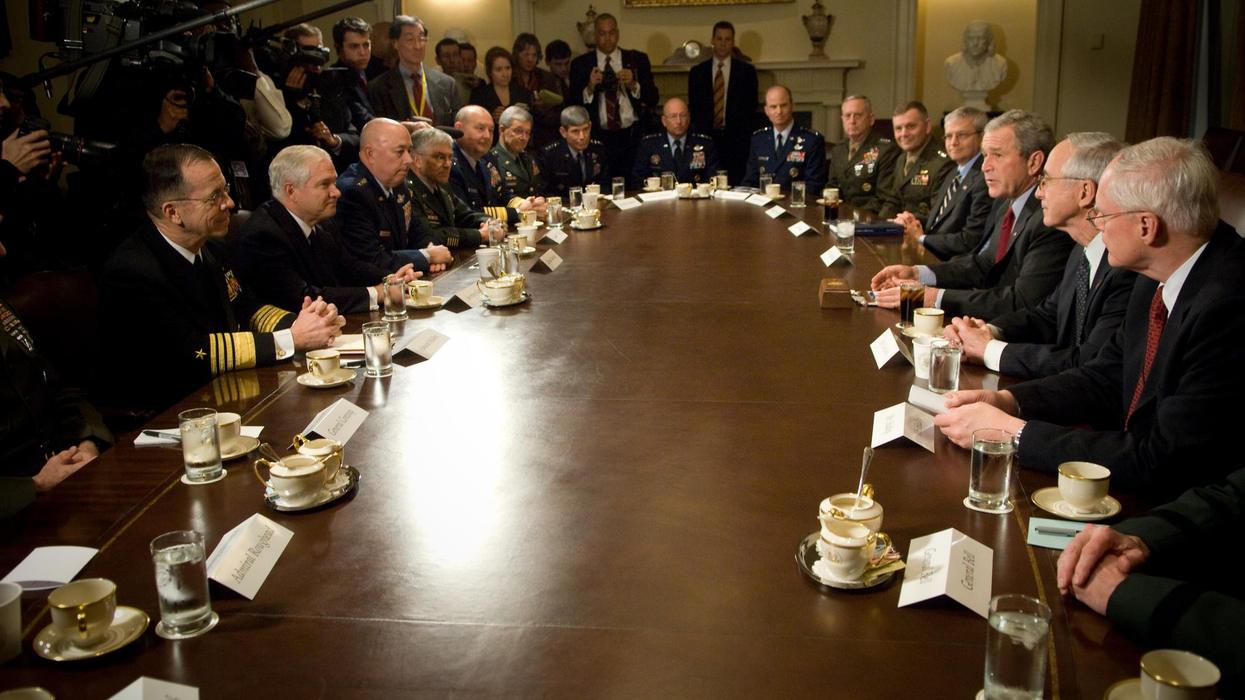The United States, Saudi Arabia, and Switzerland have been co-hosting peace talks in Geneva with the goal of ending the civil war in Sudan that has been raging between the government’s Sudanese Armed Forces (SAF) and the paramilitary Rapid Support Forces (RSF) since April 2023.
The talks, which began on Thursday, initially provided hope that they could serve as a reset for broader peace negotiations and move the conflict one step closer to ending. However, news that neither the SAF nor the RSF are attending the talks has dimmed hope that the summit will result in much if any progress.
No doubt, the peace process has struggled to gain steam. The Jeddah Process — as the on-again, off-again talks held in Jeddah, Saudi Arabia, are called — has failed to lead to any long-term peace deal. This is despite U.S. Special Envoy for Sudan Tom Perriello expressing hope that a breakthrough would soon occur in an interview he gave to Responsible Statecraft in April.
In an interview with Responsible Statecraft, Shewit Woldemichael, a Senior Analyst for Sudan at the International Crisis Group, gave credit to Washington for its mediation efforts, but noted that “the U.S. should have exerted substantial pressure on the warring parties to cease hostilities much earlier."
This is particularly true, according to Woldemichael, given that Perriello may not remain in his post following the swearing in of the new U.S. president in January. Depending on the results of the election, U.S. policy could further deprioritize Sudan, and reduce Washington’s role as a mediator.
The Jeddah Declaration released on May 11, 2023 and signed by the SAF and RSF committed both armies to protect civilians and abide by international humanitarian and human rights law — including guaranteeing access to affected civilians for humanitarian organizations — was honored far more in the breach than observed. A follow-up Jeddah Agreement on May 20, 2023, reaffirmed the importance of civilian protection while implementing a seven-day ceasefire. The ceasefire was broken less than a day after coming into force. Subsequent ceasefire efforts have also failed.
On August 9, Sudan’s Sovereignty Council, which is headed by SAF Gen. Abdel Fattah al-Burhan sent a delegation to Jeddah to meet with U.S. mediators in preliminary discussions for this week's talks and to lay out the conditions it said must be met before it agreeing to attend the summit itself. The SAF’s conditions, including its demand that the RSF hand back control over cities and towns seized during the war, proved wildly unrealistic. In the end, the SAF refused to attend the peace summit in Geneva.
Alex de Waal, a Sudan expert and Executive Director of the World Peace Foundation, told Responsible Statecraft that the SAF is a fractious coalition whose members have not agreed on their war aims and therefore cannot trust their ostensible leader, Gen. Burhan, to negotiate any concessions. They thus have stuck to a maximalist position even though it damages them internationally.
More surprising is the RSF’s absence from the table. Despite showing up to Geneva days ahead of the scheduled start date for the talks, the group decided at the last minute to boycott the negotiations without providing a public explanation. This leaves the talks without either of the main belligerents present, further reducing hopes for a major breakthrough in Geneva.
The broader geopolitics of this conflict are a further complicating factor. Egypt and Iran have both reportedly sent weapons and military equipment to the SAF while the United Arab Emirates (UAE) has reportedly provided substantial military support to the RSF. These outside influences have hurt peace efforts, with the SAF insisting that it will not attend any peace summit in which the UAE is present. (The UAE is attending the talks in Geneva as an "observer" this week in any event.)
A recently released Amnesty International report provides extensive evidence suggesting that a 2004 U.N. arms embargo on the Darfur region of Sudan, much of which has come under the RSF's control, has been continuously breached over the course of the conflict. Turkish-made weapons are being used by fighters on both sides of the conflict, with Gen. Burhan and his main aides using rifles produced by Sarsilmaz, Turkey’s “main small arms manufacturer and most important supplier,” according to Amnesty.
Amnesty’s report also claims that weapons coming from Russia, Serbia, Yemen, and China have been used in the conflict, although in some cases it is unclear which party is using these weapons and how they entered Sudan.
Ending these arms transfers is critical to ending the war, according to Woldemichael, who noted, however, that “these weapons are traveling through illicit channels, such as across the border with Libya. "There’s no way to ensure weapons don't enter Sudan,” she told RS.
The struggle for power has ravaged the country, with both sides committing widespread human rights abuses, including rape, looting, arson, and summary executions.
On August 1, the Integrated Food Security Phase Classification (IPC) released a report that found that inhabitants of the Zamzam Camp, which shelters the largest number of internally displaced people in North Darfur state are suffering from a Phase 5 level of food insecurity, or famine. The IPC defines famine as occurring when at least 20% of the population faces extreme lack of food, acute malnutrition exceeds 30%, and more than 2 per 10,000 people (or 4 children per 10,000) are dying each day from starvation or the interaction of malnutrition and disease.
Overall, more than 10 million people have been displaced in the war, with 2.1 million having fled to neighboring states. Aid groups have faced steep challenges in accessing populations in need. Often, fighters refuse to open roads for aid groups leaving innocent Sudanese with little choice but to scavenge for food, at times resorting to eating leaves and soil to stay alive.
The two sides are using the humanitarian situation to build arguments against their enemies. The Sudanese government denies that famine conditions exist in Sudan, but blames the RSF for creating a prolonged humanitarian crisis by, according to the SAF, blockading el-Fasher, the capital and largest city in North Darfur.
The RSF, in contrast, has shown itself to be more cooperative to international actors. It has accepted the IPC’s claim that some Sudanese are suffering from famine and has expressed interest in working with the UN to allow humanitarian aid to enter the country.
De Waal said that the RSF “are doing their utmost to repair the reputational damage done by their relentless pillaging and atrocities against civilians. Therefore they are being extremely amenable to international proposals for negotiations, for humanitarian access and even for a ceasefire.”
Washington's chief interest is to ensure the war remains contained. To that end, reaching an agreement that at least reduces the conflict’s severity and limits its spillover effect to neighboring countries would be a win. With refugees fleeing by the millions into neighboring states and key regional powers, such as Egypt, Iran, and the UAE, continuing to arm the warring factions, the war and its destabilizing impact is at risk of spreading.
According to Woldemichael, the greatest regional spillover “has so far been in Chad,” to which a large number of refugees are fleeing, particularly from Darfur. She also expressed "concern" over the possibility of “Eritrea and Ethiopia becoming engaged in the conflict,” with local militant organizations in the area potentially complicating an already complex battlefield.
In the end, however, both Eritrea and Ethiopia, according to Woldemichael, appear uninterested in getting entangled in the conflict. But the risk alone, however, should concern the United States.
Despite neither of the two main warring sides appearing at the negotiating table in Geneva, Woldemichael holds out hope that the negotiations could still lead to progress. Even without the SAF and RSF present, “you still have important players at the table. As long as this is the case, there is an opportunity to put pressure on external parties to take the appropriate action to move the conflict closer to a peace deal."
Moreover, pushing for humanitarian aid is not only a moral imperative, but serves U.S. interests as well. It limits the security and financial strain refugees cause to surrounding governments. The heavy flow of refugees into surrounding states could worsen instability in already unstable countries, thus risking that chaos and conflict spreads.
This is particularly problematic if the Israel-Gaza war engulfs the region, given the Middle Eastern actors with stake in the Sudanese conflict.
“U.S. Envoy Tom Perriello has a sound appreciation of the challenge he faces," said de Waal. "His problem is that even though (U.S. Secretary of State) Blinken is now making a few phone calls, there just has not been enough high-level engagement with the key powerbrokers — UAE, Saudi Arabia and Egypt — to get them behind a peace plan. Until that happens, there’s no chance of significant progress.”
Woldemichael argues that the principal focus for the United States should be “to continue to put pressure on the sides to participate in negotiations” and to work “to end the war.”
As the U.S. elections draw near and as pressure mounts on Perriello and the Biden administration to end the war, it is critical for the United States to remain the honest and neutral broker it has thus far been, and to work diligently to produce a lasting peace deal that serves both American and local interests.
- Sudan is tearing itself apart and Washington lost its capacity to help ›
- The daunting challenges facing Biden's Sudan envoy ›
- Sudan: Not exactly a fight between good guys and bad guys ›
- Sudan civil war takes dark turn as RSF launches 'parallel government' | Responsible Statecraft ›
- Sudan's bloody war is immune to Trump's art of the deal | Responsible Statecraft ›

















